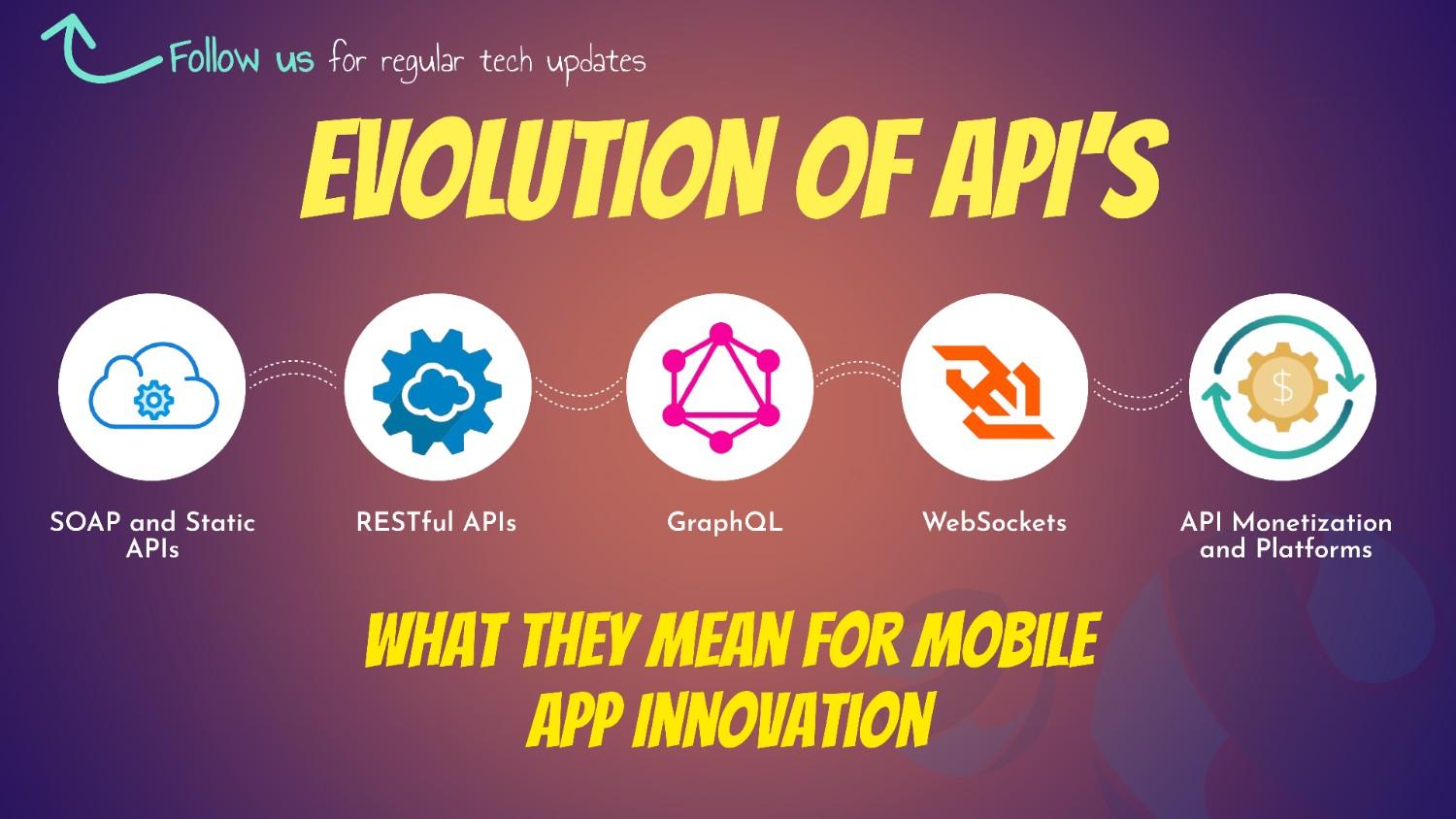💡The Evolution of APIs 🚀 What They Mean for Mobile App Innovation 🤔
APIs (Application Programming Interfaces) have transformed the way software systems interact, playing a crucial role in mobile app development. Over the years, APIs have evolved from simple communication tools into powerful enablers of innovation, reshaping how mobile apps are built, scaled, and experienced by users.
What Are APIs?
APIs act as bridges that allow different software systems to communicate with one another. For mobile apps, they enable features like data exchange, third-party integrations, and access to platform-specific functionalities (e.g., GPS, camera, and notifications).
The Evolution of APIs: From Static to Dynamic
1. Early Days:SOAP and Static APIs
In the early stages, APIs were rigid, focusing primarily on SOAP (Simple Object Access Protocol) for communication. These APIs were slow, verbose, and challenging to implement in mobile apps due to resource constraints.
2. The Rise of RESTful APIs
The introduction of REST (Representational State Transfer) brought simplicity and scalability. RESTful APIs became the backbone of mobile app development, offering lightweight, stateless, and faster communication. REST enabled mobile apps to access cloud services efficiently, laying the foundation for modern app ecosystems.
3. GraphQL: The New Era of Flexible APIs
GraphQL emerged as a game-changer, allowing developers to query precisely what they need. Its flexibility reduced over-fetching or under-fetching data, improving app performance and user experience. Many apps today use GraphQL to handle complex data relationships.
4. The Shift to Real-Time APIs
With the growing demand for real-time functionality, APIs now support WebSockets, enabling live updates and seamless interactions. Apps like messaging platforms, live sports trackers, and stock trading rely heavily on these advancements.
5. API Monetization and Platforms
APIs are no longer just tools—they’re products. Companies like Stripe, Twilio, and Google have built businesses around API platforms, providing ready-to-use solutions for payments, communication, and more.
How APIs Drive Mobile App Innovation
1. Faster Development
Pre-built APIs reduce development time. For example, integrating maps, payments, or social media sharing is as simple as calling an external API.
2. Scalability and Flexibility
APIs allow mobile apps to scale effortlessly by connecting to cloud platforms, databases, and third-party tools. Developers can adapt functionality without reinventing the wheel.
3. Enhanced User Experiences
Modern APIs enable features like AI-powered recommendations, personalized notifications, and voice assistants, offering richer experiences to users.
4. Ecosystem Building
APIs foster ecosystem growth by enabling apps to interact with other services. For instance, fitness apps integrating with wearable devices or food delivery apps partnering with payment gateways.
The Future of APIs in Mobile Apps
1. AI-Driven APIs
APIs will increasingly leverage AI to provide advanced features like image recognition, natural language processing, and predictive analytics.
2. Serverless and Edge Computing
APIs are moving closer to the user through edge computing, reducing latency and enabling real-time responses in apps.
3. Open API Ecosystems
The future will see more collaboration between apps, fostering open ecosystems where APIs seamlessly connect services across industries.
APIs have evolved from simple communication protocols to the backbone of mobile app innovation. They empower developers to build faster, create richer experiences, and integrate seamlessly with the growing digital ecosystem. As APIs continue to advance, they will unlock new possibilities for mobile apps, shaping the way users interact with technology.
#API #MobileAppDevelopment #TechInnovation #SoftwareDevelopment #CloudComputing #TechTrends #DigitalTransformation #SoftwareEngineering #APIIntegration #FutureOfTech #MobileTech #Smartphone #MobileApps #MobileDevelopment #MobileInnovation #MobileGaming #MobileFirst #MobileUX #MobileDesign #MobileTrends

